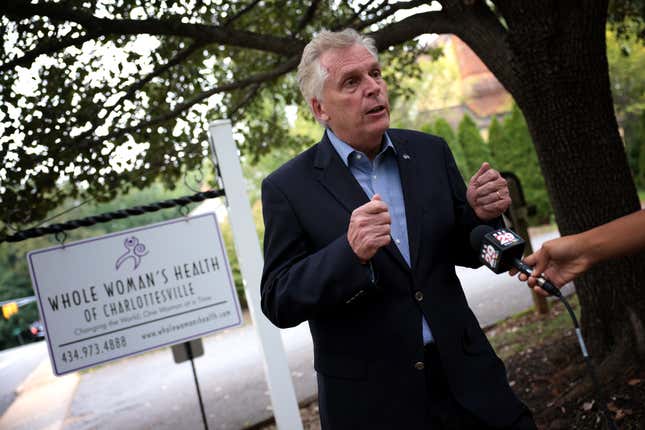Democrats Are Still Talking About Abortion on Republicans’ Terms
Terry McAuliffe, who is running for governor in Virginia, is centering abortion in his campaign messaging, but falling into conservative traps
AbortionPolitics

With weeks left to go until Virginia’s state-wide elections, Democratic candidates for office are making abortion a central issue in their races, using Texas’s abortion ban as an example of the kind of legislation Republicans could pass if they regain power.
In the first debate for the state’s gubernatorial race, former Gov. Terry McAuliffe—who is running again for his old post—promised to be a “brick wall” against anti-abortion legislation, accusing his opponent, Republican Glenn Youngkin, of wanting to ban abortion. But then McAuliffe got snagged on a question about “third-trimester” abortions, saying he would support loosening a restriction requiring patients to get three doctors to sign off on the procedure before undergoing it. He said he supports “a woman’s right to make her own decision to a second trimester.”
-

-

-

-

-

-

-

-

-

-

-

-

-

-

-

-

-

-

-

-

-

-

-

-

-

-

-

-

-

-

-

-

-

-

-

-

-

-

-

-








































